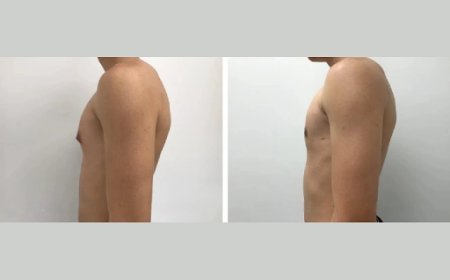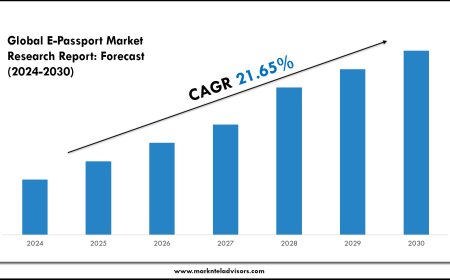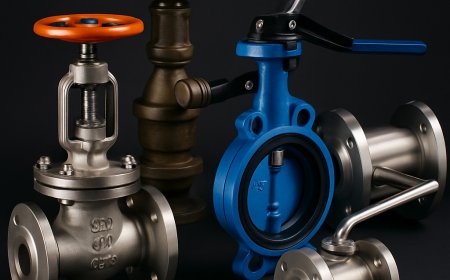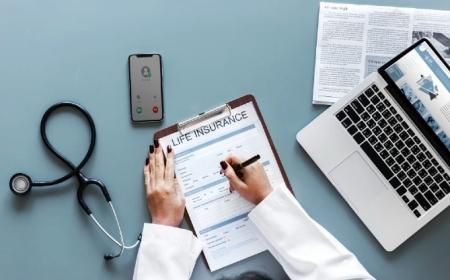10 Signs It’s Time to Visit a Colonoscopy Clinic

Your digestive health often signals when something isnt quite right and while occasional stomach discomfort is common, persistent or alarming symptoms shouldnt be ignored. A timely visit to a trusted colonoscopy clinic can help detect or rule out serious conditions before they progress. If youre experiencing any of the signs below, it may be time to book an appointment and get screened.
Why Early Colonoscopy Screening Matters
Colorectal cancer ranks among the leading causes of cancer-related deaths, but its also one of the most preventable. Detecting precancerous polyps or early-stage cancer through a colonoscopy dramatically improves treatment outcomes. A qualified colonoscopy clinic uses advanced technology and expert care to help safeguard your long-term health.
Common Signs You Shouldnt Ignore
Here are 10 symptoms that signal its time to consult a colonoscopy clinic:
1. Rectal Bleeding
Any blood in your stool whether bright red, maroon, or dark tarry warrants medical attention. While it can result from hemorrhoids or minor tears, it could also indicate colorectal polyps, ulcers, or tumors.
2. Persistent Abdominal Pain or Cramping
If you frequently experience stomach pain, bloating, or discomfort that doesnt improve with dietary changes, it could signal an underlying issue like polyps, inflammation, or diverticulitis.
3. Unexplained Weight Loss
Sudden, unintentional weight loss without changes to diet or exercise should never be ignored. It may point to digestive disorders or colorectal malignancies that a colonoscopy clinic can help diagnose.
4. Changes in Bowel Habits
Any prolonged alteration in your bowel routine including constipation, diarrhea, or incomplete emptying is a reason to seek evaluation.
Signs to monitor include:
-
Frequent constipation lasting several weeks
-
Sudden onset of diarrhea
-
Feeling of incomplete bowel movement
-
Alternating constipation and diarrhea
5. Chronic Fatigue
While tiredness can stem from many causes, unexplained and persistent fatigue may be a symptom of internal bleeding or nutrient deficiencies linked to colorectal disease.
6. Iron-Deficiency Anemia
Anemia detected through routine blood tests is sometimes caused by slow, hidden bleeding in the digestive tract. A colonoscopy clinic can investigate and locate the source.
7. Family History of Colon Cancer
If a close relative has been diagnosed with colorectal cancer or polyps, you should begin screening earlier and at regular intervals, even in the absence of symptoms.
8. Personal History of Polyps
If youve previously had polyps removed, follow-up screenings at a colonoscopy clinic are crucial since new growths can develop over time.
9. Age Over 45
Health organizations recommend that adults begin routine colon cancer screenings at age 45, regardless of symptoms, as risk increases with age.
10. Inflammatory Bowel Disease (IBD)
Individuals with Crohns disease or ulcerative colitis are at higher risk of colon complications and should undergo more frequent evaluations.
Benefits of Early Detection at a Colonoscopy Clinic
-
Removes polyps before they become cancerous
-
Identifies early-stage cancers for easier treatment
-
Diagnoses non-cancerous conditions like colitis, diverticulosis, or hemorrhoids
-
Offers peace of mind with clear results
A skilled colonoscopy clinic makes the experience safe, efficient, and patient-friendly.
What to Expect During a Colonoscopy Screening
-
Preparation: A bowel-cleansing prep is taken the day before to clear the colon.
-
Sedation: Youll be sedated for comfort.
-
Procedure: A flexible tube with a camera is inserted through the rectum to inspect the colon.
-
Polyp Removal: Any suspicious polyps or tissue samples can be taken during the procedure.
-
Recovery: Most people resume normal activities within 24 hours.
When Should You Schedule an Immediate Colonoscopy?
Visit a colonoscopy clinic without delay if you notice:
-
Large amounts of blood in stool
-
Severe, unrelenting abdominal pain
-
Sudden, dramatic weight loss
-
Ongoing anemia despite supplements
-
Change in stool shape (thin, pencil-like stools)
Timely testing can prevent serious outcomes.
FAQs About Symptoms and Colonoscopy Clinics
Q1: Are all rectal bleeding cases serious?
Not always. Hemorrhoids or minor tears often cause bleeding, but a colonoscopy clinic should rule out serious causes.
Q2: How painful is a colonoscopy?
It isnt painful. Most people are lightly sedated and feel no discomfort during the procedure.
Q3: What age should I start colonoscopies if I have a family history?
You should start at age 40, or 10 years younger than the age at which your relative was diagnosed, whichever comes first.
Q4: How long does it take to recover after a colonoscopy?
You can typically return to regular activities the next day, though youll need someone to drive you home after sedation.
Q5: Is weight loss always a sign of colon cancer?
Not necessarily, but unexplained, consistent weight loss should be evaluated by a colonoscopy clinic to rule out digestive or other health issues.
Final Thoughts
Recognizing the warning signs and acting early can make all the difference. Whether youre dealing with symptoms or reaching screening age, visiting a reputable colonoscopy clinic ensures your digestive health is well-managed. Early detection saves lives, reduces anxiety, and offers clarity when its most needed.

































